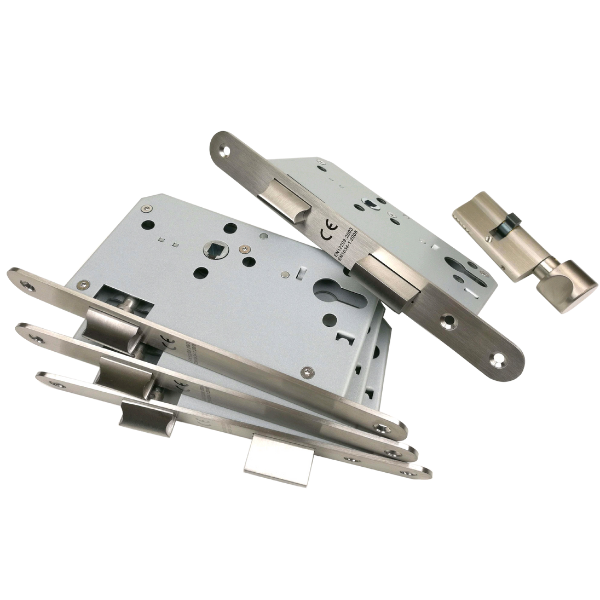Mortise locks are among the oldest and most secure locking mechanisms available, combining traditional craftsmanship with modern durability. These locks, typically featuring a combination of a deadbolt and a latch, are embedded into the door itself, offering a level of protection that is both robust and discreet. Their design and functionality make mortise locks a popular choice for those who prioritize security and longevity.
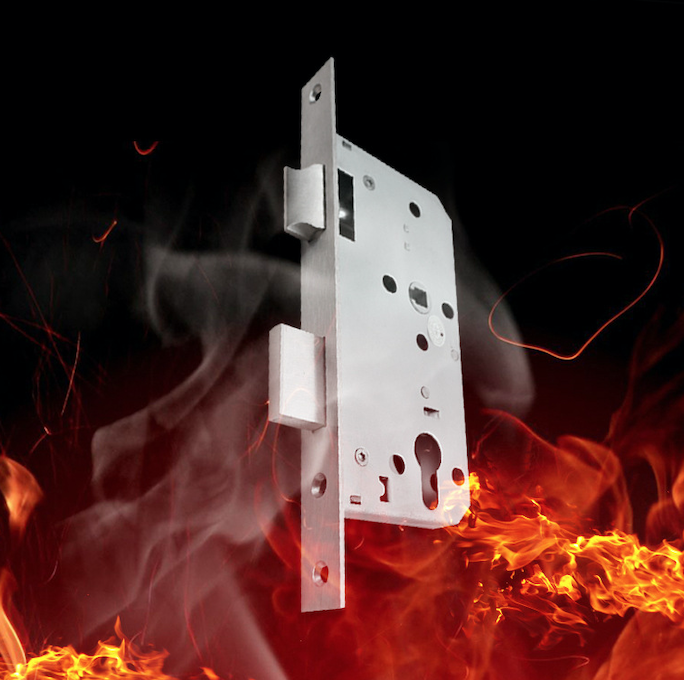
What is a Mortise Lock?
A mortise lock is a locking mechanism that integrates a latch and a deadbolt into a single unit. It requires a pocket, or “mortise,” to be carved into the edge of the door for proper installation. This unique setup ensures that most of the lock’s components are housed within the door itself, resulting in a streamlined appearance with minimal visible hardware. Beyond aesthetics, the embedded nature of the lock enhances security, as the internal mechanisms are not easily accessible from the outside.
Mortise locks often include a built-in cylinder operated by a physical key. This key system not only adds another layer of security but also makes the locks highly resistant to picking and duplication. While installation can be more complex compared to other lock types, the enhanced security and durability make mortise locks a preferred option for both residential and commercial properties.
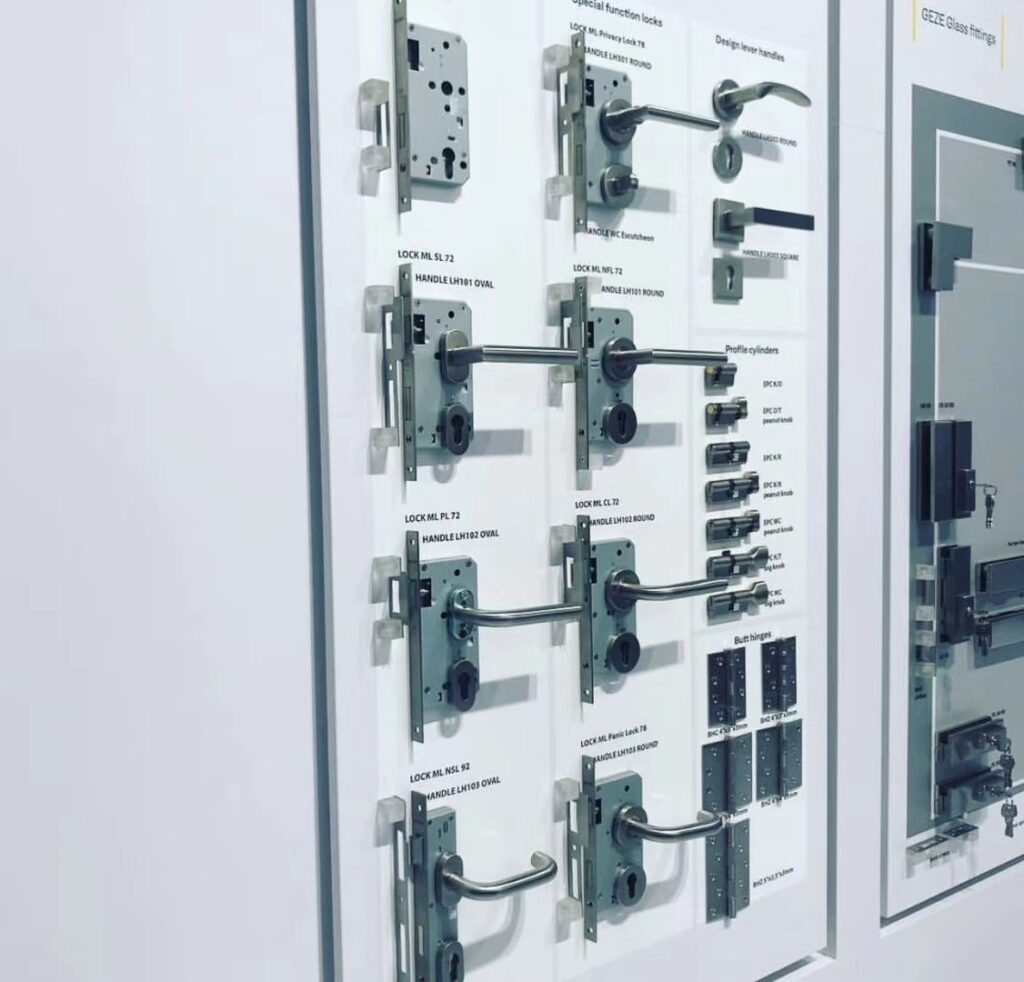
How Does a Mortise Lock Work?
A mortise lock comprises three main components: the latch, the deadbolt, and the framework.
- Latch: This component consists of two parts—one attached to the door frame and the other to the door itself. When the door is closed and locked, these parts interlock to keep the door securely shut.
- Deadbolt: The deadbolt is operated using a key or a thumb-turn mechanism. It fits into a corresponding indentation in the door jamb, ensuring the door remains firmly locked. This adds an additional layer of security, as deadbolts are significantly harder to force open.
- Framework: The framework serves as the housing for the latch and deadbolt. Made of sturdy materials like metal or hard plastic, it holds the internal components in place and attaches to the door with screws. The framework also includes a faceplate, which protects the lock’s mechanisms from external tampering.
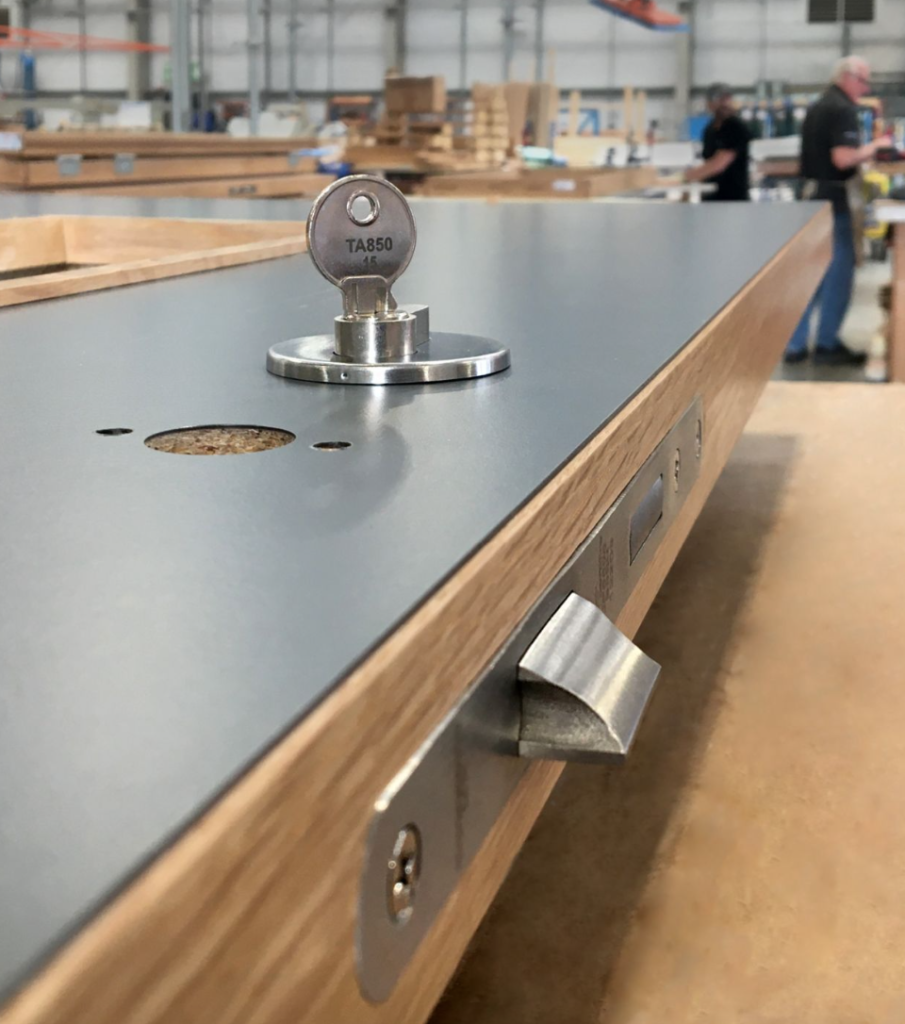
When properly installed, a mortise lock ensures that the door remains securely closed until someone with the appropriate key unlocks it.
Advantages of Using a Mortise Lock
Mortise locks offer several benefits that make them a superior choice for securing doors:
- Enhanced Security: Unlike traditional door locks, mortise locks require a key to operate, ensuring that unauthorized access is significantly more difficult. Their robust construction also provides greater resistance to physical force and tampering.
- Durability: Constructed from high-quality materials like solid metal, mortise locks are designed to withstand harsh conditions, including extreme temperatures, corrosion, and wear and tear.
- Aesthetic Appeal: Mortise locks are available in various styles and finishes, allowing you to choose a design that complements your home or office decor. Their sleek, integrated appearance enhances the overall look of your doors.
- Resistance to Forced Entry: The complexity of their internal mechanisms makes mortise locks highly resistant to picking and other forms of forced entry.
- Professional Installation: Although mortise locks require professional installation due to their complexity, this ensures they are securely and correctly fitted, providing peace of mind.
Types of Mortise Locks
Mortise locks come in different designs to suit various needs. The two primary types are traditional domestic mortise locks and euro-style domestic mortise locks.
1. Passage Locks
Passage locks are designed for doors in public or shared spaces like hospitals, shopping malls, or corridors. These locks feature a simple latch mechanism that engages when the door is closed but can be opened by simply depressing the handle. They provide no security and are intended mainly for functions like wind resistance, thermal insulation, and noise reduction.
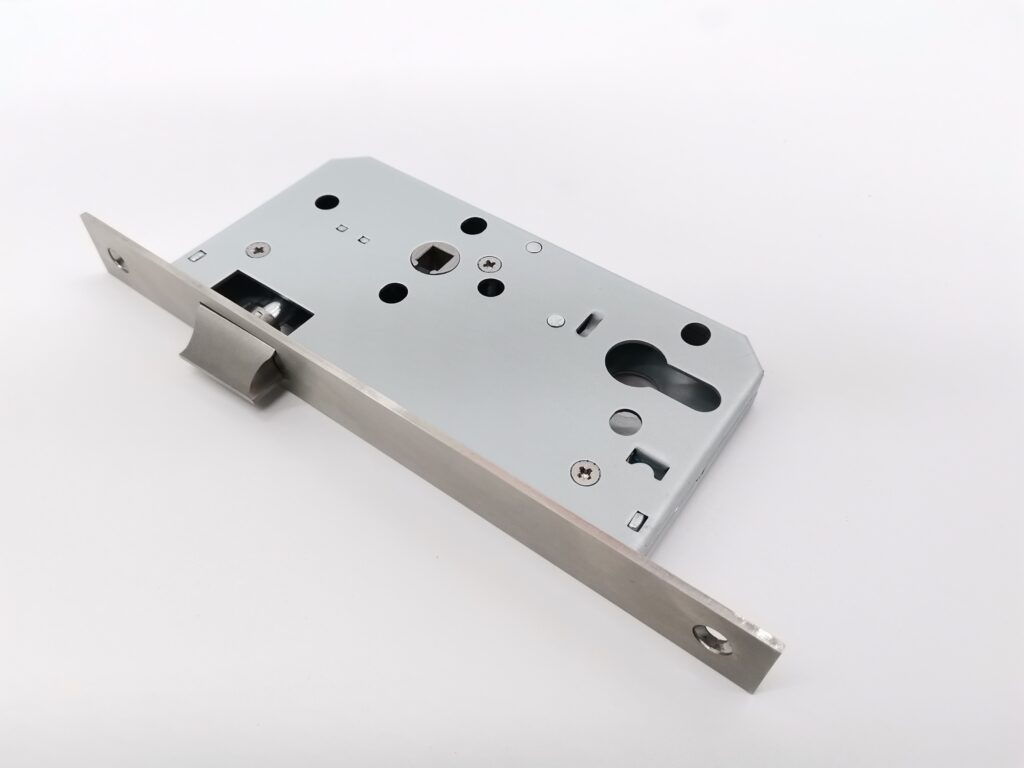
2. Deadbolt Lock
Single deadbolt locks consist of a single bolt operated with a key, often used in areas like basements or storage rooms. These locks are ideal for doors that do not require frequent access but still need a degree of security. Rooms secured with single deadbolt locks often serve as storage spaces in public or commercial settings, where moderate protection is adequate.
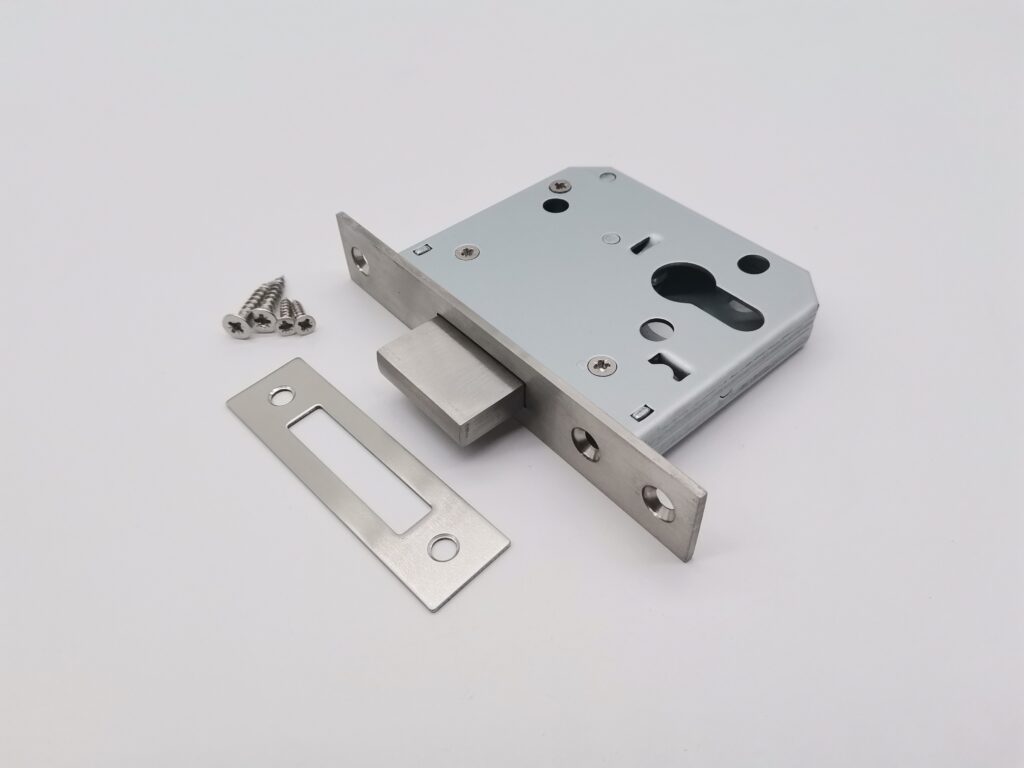
3. Magnetic Locks
Magnetic locks are commonly installed on interior doors in residential settings. The latch, made from high-strength nylon, automatically engages when the door is closed and is retracted by pressing the handle to open the door. This mechanism eliminates protruding parts on the door edge, enhancing aesthetics and safety. Magnetic locks are valued for their sleek design and functionality, making them a popular choice for modern interiors.
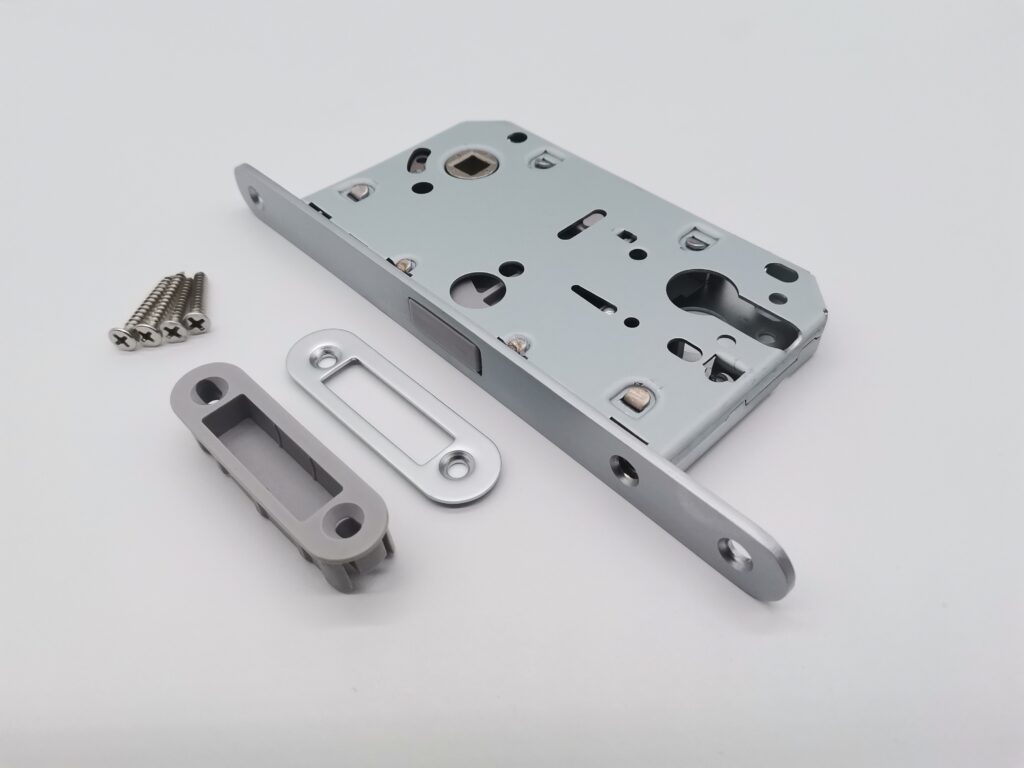
Advantages of Using a Mortise Lock
Mortise locks offer several benefits that make them a superior choice for securing doors:
- Enhanced Security: Unlike traditional door locks, mortise locks require a key to operate, ensuring that unauthorized access is significantly more difficult. Their robust construction also provides greater resistance to physical force and tampering.
- Durability: Constructed from high-quality materials like solid metal, mortise locks are designed to withstand harsh conditions, including extreme temperatures, corrosion, and wear and tear.
- Aesthetic Appeal: Mortise locks are available in various styles and finishes, allowing you to choose a design that complements your home or office decor. Their sleek, integrated appearance enhances the overall look of your doors.
- Resistance to Forced Entry: The complexity of their internal mechanisms makes mortise locks highly resistant to picking and other forms of forced entry.
- Professional Installation: Although mortise locks require professional installation due to their complexity, this ensures they are securely and correctly fitted, providing peace of mind.
Conclusion
Mortise locks stand out as one of the most secure and stylish locking mechanisms available. Their combination of a robust design, advanced security features, and elegant aesthetics makes them a preferred choice for homes, businesses, and institutions. Whether you choose the traditional or euro-style variant, a mortise lock provides peace of mind and a reliable defense against unauthorized access. Additionally, alternative locks such as passage, single deadbolt, and magnetic locks cater to specific needs, expanding your options for securing and enhancing your spaces. Investing in a mortise lock or other tailored locking solution is a smart decision for anyone seeking to enhance both the security and style of their property.

